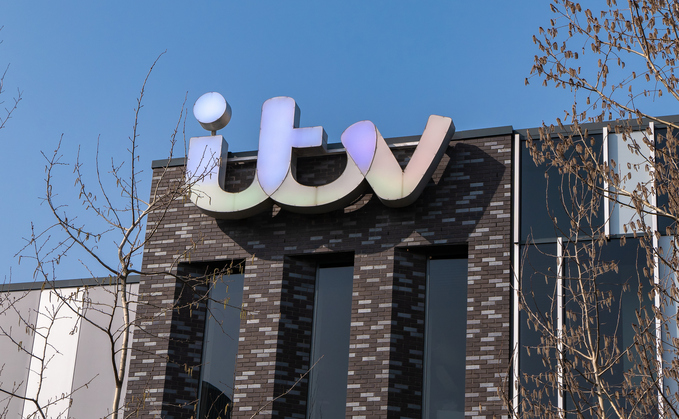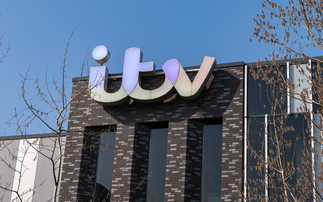Credit: iStock
Broadcaster sets out SBTi-validated climate goals and how it plans to achieve them in first Climate Transition Plan
ITV has published wide-ranging new plans to slash its direct and value chain emissions by 90 per cent and achieve net zero by 2050, as part of the the broadcaster's inaugural Climate Transition Plan.
The plan, which contains targets that have been validated by the Science Based Targets initiative (SBTi), was released yesterday and also includes a series of interim goals for 2030. Specifically, the company has committed to cutting Scope 1 and 2 direct emissions by 46.2 per cent by the end of the decade, and reducing Scope 3 value chain emissions by 28 per cent against a 2019 baseline by the same date.
It added that it is also aiming to achieve 'zero waste' status by 2030 and ensure 100 per cent of shows produced and commissioned in the UK to achieve certification under the BAFTA albert sustainability scheme.
The plan includes details on how ITV intends to meet the targets, providing a series of commitments to transition towards greener buildings and vehicles, and work with its supply chain to slash emissions across production, broadcasting, and streaming.
For example, it estimates building upgrades will save approximately 190 tonnes of CO2 annually from 2024, while the installation of solar panels will prevent around 416 tonnes from 2025, and direct sourcing of 100 per cent renewable electricity from 2025 will avoid some 2,200 tonnes CO2 annually compared to 2023.
Moreover, ITV said it would seek to "normalise sustainable choices" by embedding climate and nature-positive content across all genres and for all audiences, while also increasing the visibility and impact of climate action on-screen.
The broadcaster added that carbon removals and carbon credits do not currently form a "critical part" of its decarbonisation strategy and transition plan, and that the broadcaster does not currently invest in offsetting carbon emissions directly.
ITV has committed to publishing an updated version of its transition plan at least every three years in line with Transition Plan Taskforce (TPT) recommendations set out in October, and will provide updates on a yearly basis through existing climate-related disclosures.
According to its Transition Plan, ITV has been reporting on environmental matters for the past two decades, including disclosing in line with the TCFD recommendations since 2019 and voluntarily responding to CDP's Climate Change Questionnaire since 2020.
Writing in the Plan's foreword, Chris Kennedy, ITV's COO, CFO, and chair of the broadcaster's Climate Action Delivery Group, stressed the programme was aligned with the SBTi Net Zero Corporate Standard, while targets mirror the government's commitment to reach net zero emissions by 2050.
"Navigating these changes will require shifts in the way that all businesses operate, and we welcome the framework from the UK's TPT to help guide us and others across the economy," he said. "It is important to emphasise that our transition plan is not a static document but will be adapted to reflect the continually changing regulatory environment, and the latest climate science.
"This is our initial plan and it outlines not only what we are doing, but where we know that we have gaps in our response to the climate transition and what steps we are taking to address these."
The plan's launch comes off the back of a year in which ITV more than halved its Scope 1 and 2 emissions, while its Scope 3 emissions fell by 17 per cent versus its 2019 baseline.
Over 90 per cent of UK programmes produced by ITV Studios in 2023 were BAFTA albert certified, while the broadcaster claims that more than nine-in-10 staff members have now completed Climate Action training.
ITV also scooped three Campaign Ad Net Zero awards for Love Island and eBay's pre-loved partnership, while second hand marketplace Vinted became the headline sponsor for the relaunch of Big Brother.
Posting on LinkedIn, the broadcaster's head of sustainability Jeremy Mathieu said that publishing the plan does not mean ITV has "all the answers".
"There's still a lot of work to do to align business strategy and climate objectives, define the activities, metrics and targets we need to bring the transition plan to life, as well as ensuring it is embedded into the business planning, everyone upskilled to deliver the plan, etc," he wrote. "But it was important for us to engage early with the framework, so that we can set up our transition programme in the best possible way, and have a clear path to meeting all the upcoming regulations and have a business that's ready to thrive in the net zero transition.
"Transparency and collaboration are going to be even more fundamental as we get into the next phase of the net zero transition across society, so we are sharing our progress and ambition in that spirit (and with a lot of humility!)."
Want to understand what is going on at the cutting edge of sustainability? Check out BusinessGreen Intelligence - the premier information for professionals focused on the UK's green economy.









